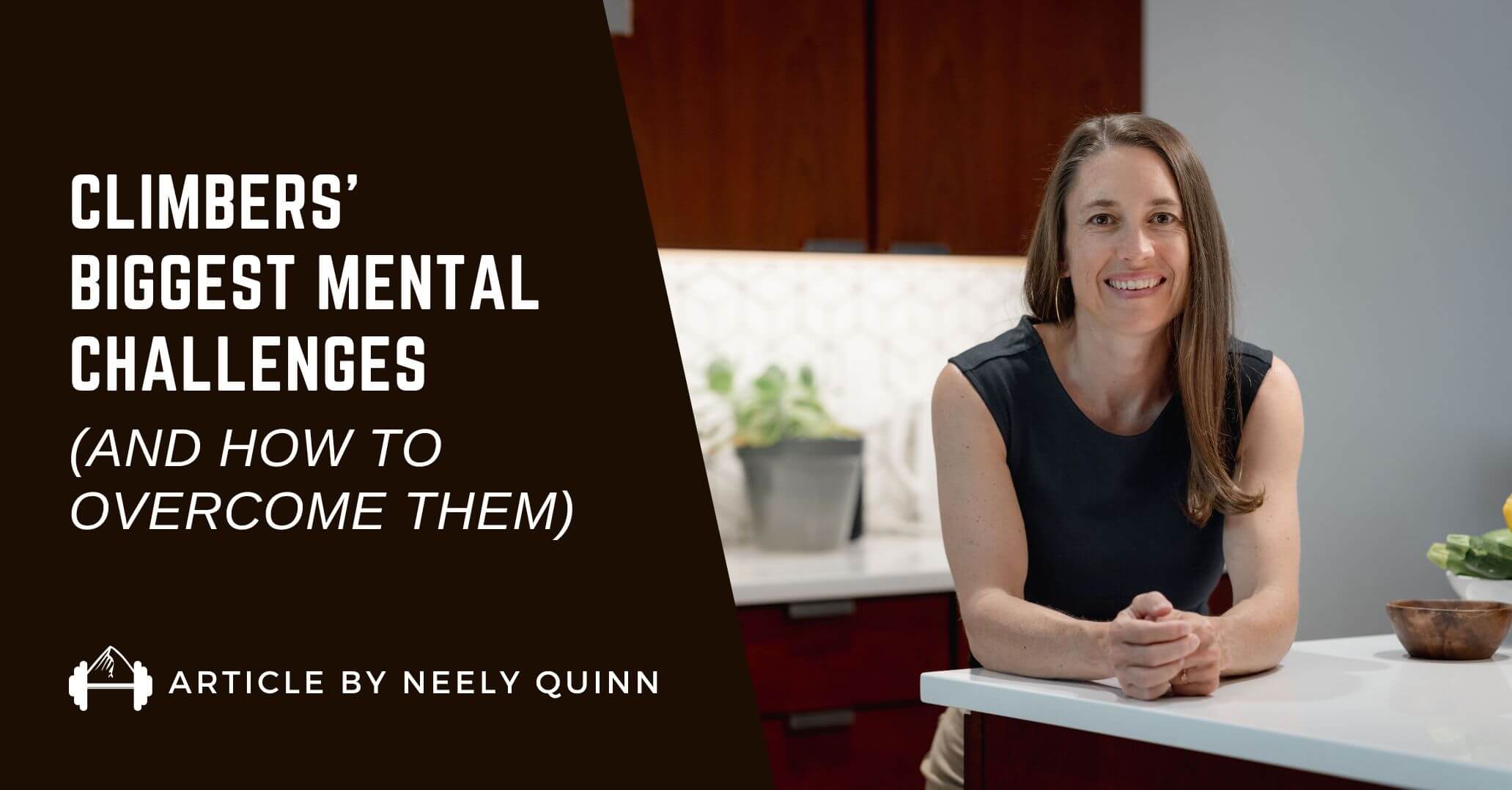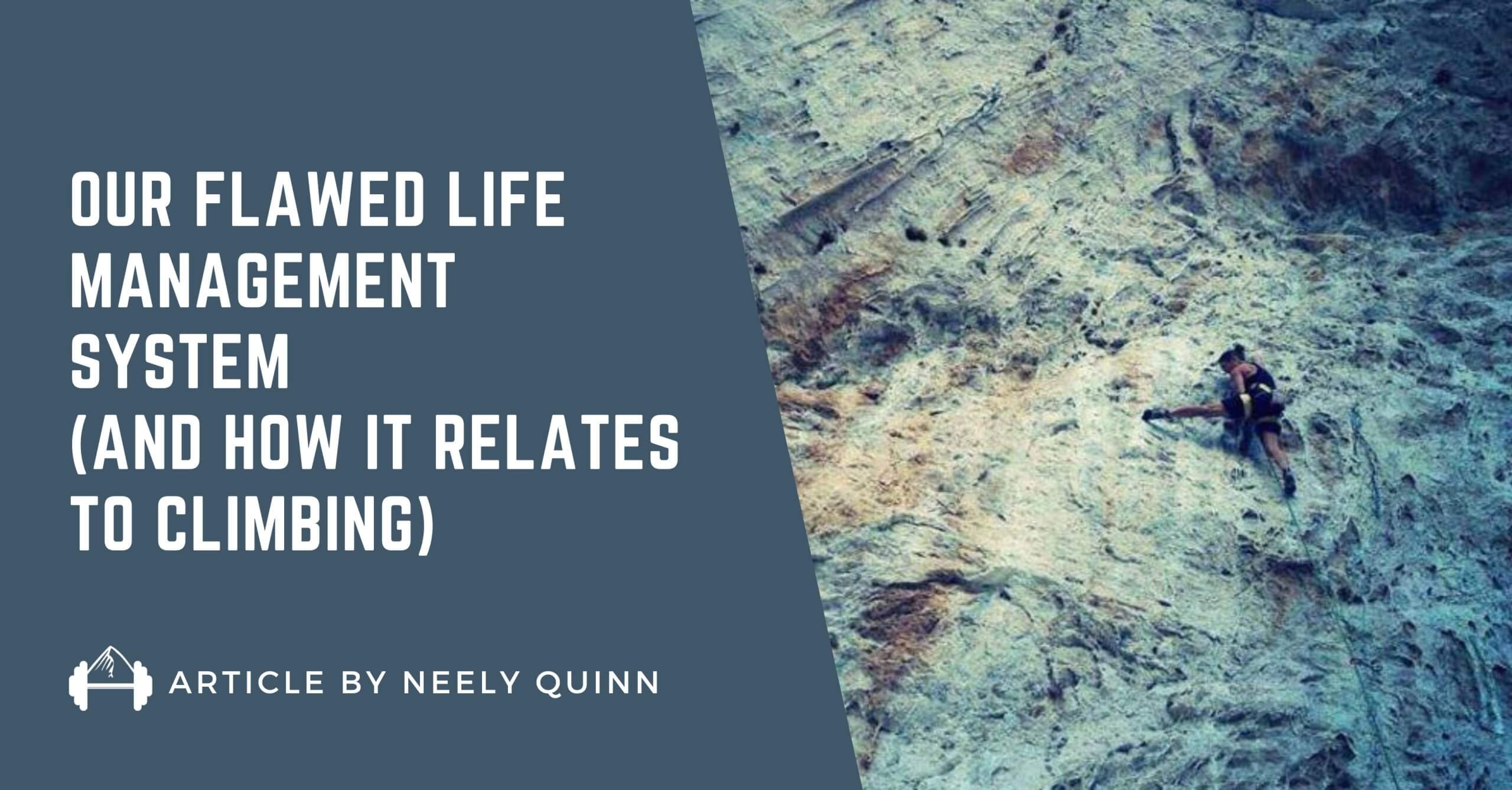As a newly minted life coach with an audience full of rock climbers, it’s a little confusing how my new skillset can be applied to climbers. As a Certified Professional Coach, my job is to ask you empowering questions to help you make decisions, feel more confident, reach goals, communicate better, and have more joy in your life.
But what I’m realizing is that as a nutritionist and a person who has a lot of experience with climbing and climbing training, I have more to offer to climbers than just asking empowering questions. My coaching can be a mixture of life coaching, nutrition consulting, and mentorship, if a client so chooses.
And the description of the client session below is just that – a diverse mixture of me giving nutrition advice, asking her empowering questions, validating her, and providing a little bit of insight from my experience as a climber. I loved it and she told me it was a successful session, so I wanted to share. Hopefully this helps you see what kinds of things we can talk about in Coaching Sessions together.
The sky is the limit with coaching topics, but this client presented some really common topics for climbers.
Here’s how the session went…
Jen (not her real name) came in wanting to know what would take her to reach her climbing potential–to get to the next level in her climbing–having been stuck at 5.12 for the past 15 years. She felt like she was running out of time (in her 40’s) to climb hard, and she was frustrated and confused about why she wasn’t all-around better at climbing, even though she’s dedicated so much time, energy, and money to the sport over the years.
Her life is set up so that she only works for short periods of time and then she travels around the world to climb the rest of the time, so it’s understandable that such a dedicated climber would want answers to these questions and a roadmap moving forward.
Was it Her Weight that Was Holding Her Back?
The first thing she brought up was that she thought maybe it was that she needed to lose weight – maybe if she lost a few pounds it would help her reach her climbing potential. We talked about what her current weight was, if she knew her body fat percentage, if she’d lost weight before and how she felt climbing when she had. We got into some details.
But when I asked her how true it was for her that losing fat and in her words, “being less bulky” would make her a better climber, she quickly was able to say that it wasn’t true. That she didn’t want to lose weight and she didn’t even think it would help her.
Was it Her Lack of Focus and Her Fear?
At that moment she realized that her weight, her training, and her strength were not what were holding her back. It was her mindset, and she’d been afraid of even examining it before. She said that she was unable to focus on the routes she was climbing on because of her fears on the wall – the fear of falling, getting bad catches, not knowing what would happen if she fell, etc. And just other random thoughts floating around in her head keeping her from focusing.
But after some introspection on her part and some questioning on my part, we came to the realization that it wasn’t any of that.
What It Really Was
The fact was that she traveled around the world and country to climb, but she was mostly doing it in pursuit of yes, climbing, but also spending time with the people she loved while supporting them on their climbs. Some of her strongest values are around community, relationships, and being supportive to others. So when asked if she’d rather pick a project and set her mind to it OR spend time with her friends at crags they wanted to be at, it was a no-brainer for her: She would always choose spending time with her friends at crags they wanted to be at.
This realization helped her find a little bit of peace with where she is currently with her climbing and be more accepting of her current status as a climber. She said she was frustrated sometimes that she was always “projecting other people’s warmups,” but now she cared less about that. It was just really important for her to be climbing, having fun, and supporting others among a community she loves.
Some Validation for the Short Climber
We also talked about how she wants to feel really solid at all kinds of grades at all kinds of cliffs around the world, and that it’s really hard for her to feel mastery of the sport, even though she’s been climbing for 20+ years.
I pointed out that as a 5’1” climber, the sport is not made for her – the grades are not the same – and it’s completely reasonable that she would struggle on some 5.11’s or even 5.10’s sometimes because of her petite stature. And that even though super short climbers have to be more dynamic (and therefore more out of control and more scared), stronger, and better in almost every way at climbing than taller people, they get little to no acknowledgement for all of that, so it feels like she’s just failing a lot. In reality, she’s doing the best she can with her body, her resources, and her mind in every given moment. This gave her some solace and validation and allowed a little room for some grace with herself.
A Game to Help with Fear of Falling / Being Out of Control
The other thing we discussed was her fear of falling because it was definitely a factor in her climbing and willingness to try hard on routes. I recognized her fears having to do with being out of control (putting her life in the hands of her belayer, etc), which is completely normal for climbers!
This recognition of it having to do with “control” and not just an irrational fear she somehow needed to “get over” gave her a way forward with working with the fear. I told her about a drill I do in the gym where I let my belayer yell “fall” at any point on a route in the gym and I have to let go. It’s hard and scary at first, but it allows you to let go of control and see that everything will be ok if you set yourself up safely. She was excited about a tangible way of dealing with the lack of control and said she would try that out in the gym during her next session.
Incorporating Some Serious Projecting?
Lastly, I pointed out that she said, “I don’t really ever project things.” And upon further investigation, she doesn’t usually try things more than 5 or 6 times, and there’s a lot of defeatist self-doubt inside of her when she does get on things that feel hard for her. She gives up and moves on.
I suggested that projecting things more than 5-6 times is how people break into harder grades and send their goal routes, and that incorporating more serious projecting into her climbing could be helpful in that regard. After a pause, she said that was something she really needed to hear, and that she would think about it. But she asked if I thought projecting actually made people into better climbers because sometimes she’d project something and then go to another crag and feel like she sucked.
The Value of Serious Projecting
My response was that sometimes projecting does make us a little bit weaker because we’re just working on that one thing (depending on how we work on it), and we can feel a little off on other climbs. But that projecting helps us believe that we can do hard things, and it helps to slowly erode those defeatist, self-doubting thoughts that crop up and tell us to just give up. As my friend Lucie said in this Climbing Magazine article, “Whittling a climb down from unfathomable to possible to doable to done takes a person on a soul journey that might as well be a religious experience.”
Projecting helps make us confident, teaches us how to keep our shit together on and off the wall, and it gives us a goal to work hard for. It teaches us how to stay focused on just one move at a time, on making incremental progress and celebrating small wins, and if done well, projecting turns the actual send into simply a joyful bonus.
What She Got from the Session
So in all, Jen walked away with three tangible things:
- The knowledge and true belief that losing weight was not her answer
- That if she wanted to climb harder grades or reach her climbing potential, she would need to make a choice to put her own goals before partners’ goals (or find projects of her own at the places her friends wanted to be at), and that even if she never did that, she would be ok with it.
- A drill to do in the gym to help her with her fear of falling and being out of control.
I think this coaching session was all around successful, and I’ll be interested to see how these things play out in her life. But it was just so lovely, as always, to see a person uncover little tidbits of intuition and self-knowledge and feel like the path before them was just a little clearer.
She came in to the session saying she feared that maybe she’d “wasted” the last 20 years on climbing because she wasn’t even “that good at it.” And she came out of the session with a brand new appreciation for the values that have driven her to be such a passionate climber for so long, which really have nothing to do with climbing grades.
Work with Me on Your Climbing Potential and Priorities
If you want help reaching your potential in climbing through improving your mindset, let’s work together. It can be difficult to sort through your thoughts, emotions, and priorities around climbing without someone guiding you with the right questions and a second set of eyes on the situation.
We can do a single session or a block of 3 or more sessions to help you set your priorities, make a plan, and work through issues that come up along the way. I’m here for it all.
About the Author, Neely Quinn

Neely Quinn is the founder of TrainingBeta.com, the host of the TrainingBeta Podcast, a Certified Integrated Clinical Nutrition Therapist specializing in rock climbers, and a Certified Professional Coach who helps climbers with their mindset. She has been climbing since 1997 and is continuously striving to become a more masterful climber using training, nutrition, and mindset.
She lives in Longmont, Colorado and Las Vegas, Nevada with her husband and co-founder of TrainingBeta, Seth Lytton, and their heeler mix, Willa.
You can find her nutrition services here and her coaching services here.





Leave A Comment